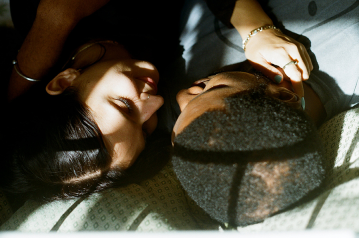Period pain vs. Endometriosis: How to tell the difference

Almost every woman has been told at some point, “Period pain is normal.” But when the cramps knock you off your feet, painkillers barely touch it, or you’re missing work every month, it’s hard not to wonder — is this just a rough period, or could it be endometriosis? Knowing the difference matters, but it’s not always obvious. Let’s unpack it.
When is period pain considered “normal”?
Period pain (dysmenorrhea) happens because the uterus contracts to shed its lining. Mild to moderate cramps, bloating, and mood swings are all common — unpleasant, but usually manageable with rest, over-the-counter pain relief, or a hot water bottle.
Signs your pain may still fall into the “normal” category:
- It improves with standard pain medication.
- It lasts for 1–2 days, usually at the start of your period.
- It doesn’t regularly stop you from going to school, work, or social plans.
What makes endometriosis pain different?
Endometriosis is a condition where tissue similar to the uterine lining grows outside the uterus. This tissue responds to hormones, causing inflammation, scarring, and pain that goes beyond typical cramps.
Key differences in endometriosis pain:
- Intensity: Pain is often severe enough to interfere with daily life.
- Timing: Pain isn’t limited to your period — it may occur during ovulation, sex, bowel movements, or urination.
- Duration: Pain can start days before your period and last longer than the bleeding itself.
- Other symptoms: Heavy bleeding, fatigue, digestive issues, or difficulty conceiving.
Why the confusion between the two?
Because pain is subjective, it’s easy for people (including doctors) to dismiss endometriosis as “bad periods.” Many patients spend years being told their pain is normal before finally receiving a diagnosis. The lack of awareness only delays treatment.
When to seek medical help
If your period pain is so severe it disrupts your life, doesn’t respond to medication, or comes with other symptoms like heavy bleeding or pain during sex — it’s time to talk to a doctor. Early evaluation and management can make a huge difference in quality of life.
Living with endometriosis
Endometriosis doesn’t have a cure yet, but treatments can help manage symptoms — from hormonal therapies to surgery. Emotional support is just as important, since living with chronic pain takes a toll.
The bottom line
Normal period pain is common — but pain that leaves you curled up on the floor, missing work, or suffering for days isn’t something you should ignore. Endometriosis is real, it’s common, and it deserves more awareness and better care.
At Gaia, we believe in taking women’s pain seriously. Our Plans are built to support you through diagnosis, treatment, and the emotional weight of fertility struggles, so you don’t have to navigate it alone.




.png)